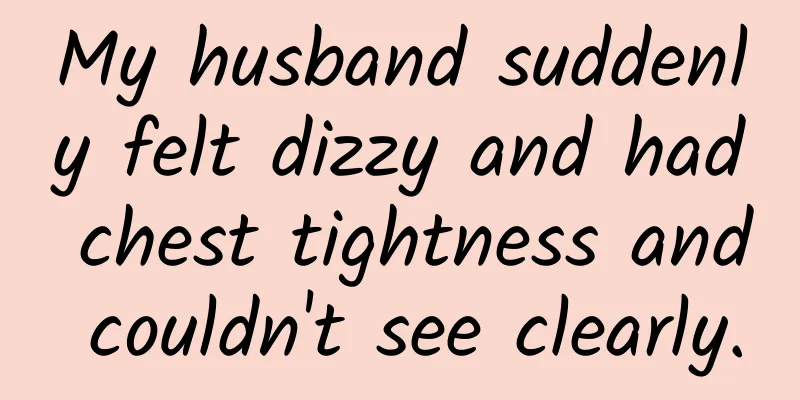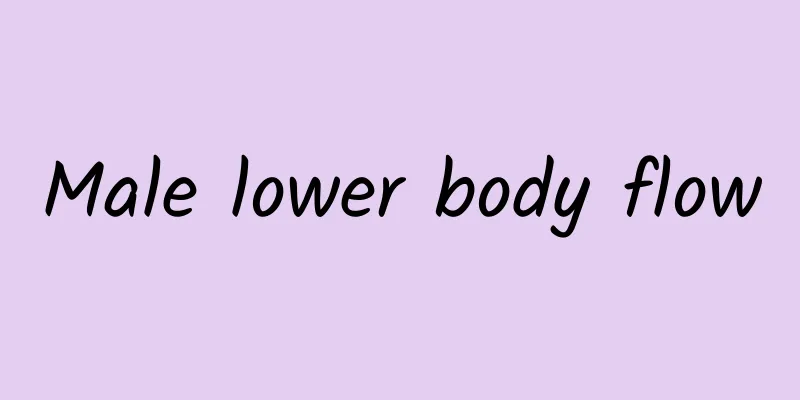My husband suddenly felt dizzy and had chest tightness and couldn't see clearly.

|
If your husband suddenly feels dizzy and can't see clearly, you should take him to the hospital for examination, because he may also have symptoms of chest tightness. If not treated in time, it may cause complications of stroke. If this is the case, it is very serious and it is difficult to relieve it through some treatment methods. Ultimately, the patient will be unable to take care of himself. 1. Stroke A stroke is characterized by sudden collapse, unconsciousness, crooked mouth and tongue, hemiplegia, and aphasia; or collapse without collapse, but only crooked mouth and tongue. A stroke collapse is similar to a collapse caused by vertigo, and vertigo can be a precursor to a stroke, but patients with vertigo do not have hemiplegia, crooked mouth and tongue, or stiff tongue and dalliance. 2. Syndrome Syncope is characterized by sudden collapse, unconsciousness, or cold limbs. After the attack, the patient generally wakes up gradually in a short time, and there are no sequelae such as paralysis, aphasia, and crooked mouth and tongue. In severe cases, the patient may die from syncope. Severe vertigo attacks may also cause dizziness and fainting, but generally there is no coma. 3. Epilepsy Epilepsy is characterized by sudden collapse, unconsciousness, drooling, eyes looking up, limbs twitching, or pig-like sounds coming out of the mouth, waking up after a while, and being like a normal person after waking up. Epilepsy collapse is similar to collapse in severe vertigo, and there are often precursors such as vertigo, fatigue, and chest tightness before the onset. After the onset of the disease, there are often symptoms such as fatigue, dizziness, etc. Therefore, it should be distinguished from vertigo. The key points of differentiation are that epilepsy collapse must be accompanied by coma, drooling, eyes looking up, twitching, pig-like sounds, etc. 4. Dizziness Many people mistake dizziness and vertigo for each other. Dizziness is a broader concept, including dizziness, lightheadedness, and confusion, while vertigo is a more clinically specific symptom. It is a kind of movement illusion or hallucination, and it is the patient's orientation disorder or balance disorder for spatial relationships. The patient may feel mainly like falling over, or feel that he or she is shaking or the scenery is spinning. During an attack, the patient feels that the surrounding objects are spinning when he or she opens his or her eyes, and that he or she is spinning after closing his or her eyes. It is often accompanied by nausea, vomiting, cold sweats, fast or slow heart rate, increased or decreased blood pressure, and even hyperperistalsis and frequent bowel movements. |
<<: Men want to urinate after ejaculation
>>: What is the cause of peeling of the glans folds?
Recommend
Causes of scrotal moisture in men
Some boys feel that their scrotum is moist and it...
How to treat gallbladder cysts? How to treat gallbladder cysts?
Cholecystitis is a disease that is very harmful t...
What are the symptoms of glans warts?
The male reproductive tract and urethra opening a...
Sending a cake for your wedding anniversary? Why not make it yourself?
What is the best gift for your lover on your weddi...
How should men nourish their kidneys?
Nowadays, many men will choose kidney-tonifying f...
What to do if the testicles are itchy
Itching of the skin under the testicles may be sc...
Granulation in the coronal sulcus is painless and itchy
Men should pay more attention to their physical h...
Candidal glansitis
Trichomonal glansitis is a common disease in derm...
What medicine is used to treat male pubic lice
Lice are a type of insect that appears due to poo...
For positional vertigo, otolithiasis should be considered first!
Speaking of dizziness, I guess many of you have e...
Is surgery necessary for phimosis?
Regarding prepuce being too long, both men and wo...
What are the items required for a full set of thyroid function tests?
Generally speaking, when people have thyroid probl...
If a man has this thing, his wife will definitely give him a "full score"
Diet plays a very important role in our lives. Th...
What are the symptoms of male sub-health?
Sub-health is a term we often hear nowadays. Espe...
Why do men have inverted nipples?
Some people find that their nipples are inverted ...









